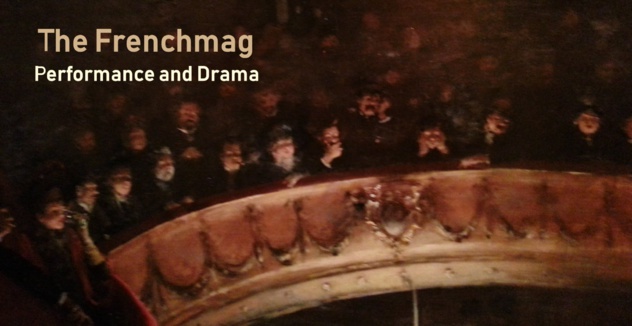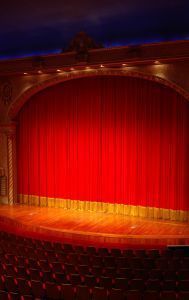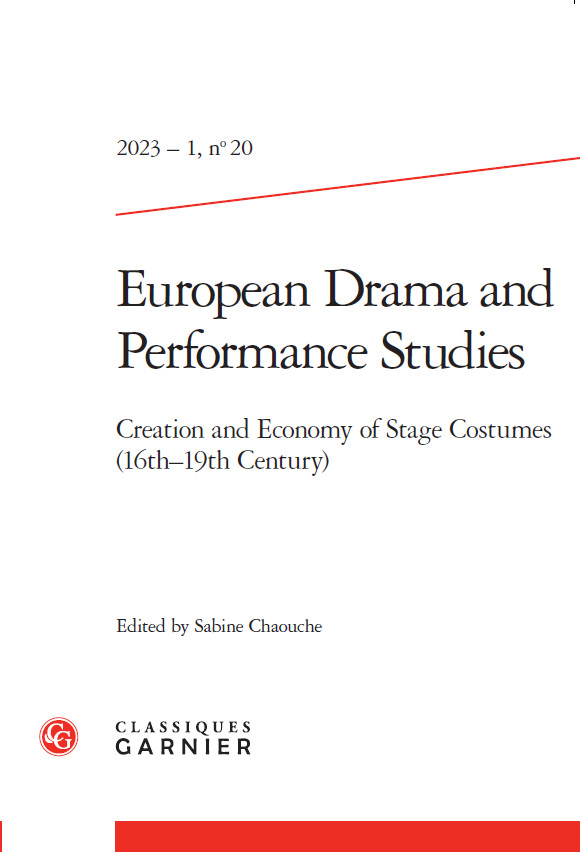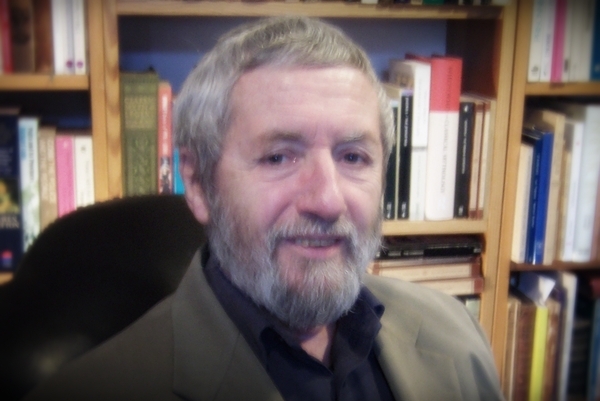
Professor Emeritus Mark Bannister specializes in seventeenth and eighteenth century Literature and Theatre. Following Barry Russell's untimely death in February 2003, he was appointed Director of the CESAR project. In 2004, he was awarded a large grant by the Arts and Humanities Research Council to fund a two-year project entitled "CESAR Images". In 2006, the imagebank included more than 3,500 engravings. Professor Bannister also contributed to the development of the whole website (police reports section, online access to the proceedings of the CESAR conferences 2006 and 2008, data items). We are delighted to present Professor Mark Bannister, a successful scholar and "entrepreneur" in online resources.
You were a student at Oxford University. What kind of an experience was that?
I was an undergraduate in the 1950s when the proportion of school-leavers going on to higher education in the UK was very low by modern standards, about 3% I think. Oxford provided contact with a lot of bright minds and allowed you to develop intellectually in many directions. And of course the libraries had everything an enquiring mind could wish for. Mind you, I have to say that the standard of teaching I experienced was not always brilliant. Of the eight or nine tutors I went to for various options, only two or three could be said to have been inspiring. And in those days no-one ever discussed what the object of studying literature was: it seemed to be, as Terry Eagleton put it, “a kind of superior wine-tasting”, learning to rank authors using the “correct” language. Nowadays, of course, things are totally different and those who are lucky enough to get into Oxford have a stimulating and enlightening experience.
When I went on to do a doctorate a few years later, the benefits of being at Oxford became clearly apparent. There were enough doctoral students to provide a critical mass for mutual support and there was a constant interchange of ideas both within the university and with visiting academics. I remember stimulating seminars with Scherer, Guicharnaud, Mandrou, Goubert, and a famous stand-off between Mousnier and Trevor-Roper.
When I went on to do a doctorate a few years later, the benefits of being at Oxford became clearly apparent. There were enough doctoral students to provide a critical mass for mutual support and there was a constant interchange of ideas both within the university and with visiting academics. I remember stimulating seminars with Scherer, Guicharnaud, Mandrou, Goubert, and a famous stand-off between Mousnier and Trevor-Roper.
In what directions did your academic interests take you?
As a dix-septiémiste, I first worked in depth on prose fiction, primarily in the first half of the century. It was an area that had not been explored in any great detail, and major authors such as Gomberville and La Calprenède were often dismissed in patronising terms. Maurice Lever likened the subject to a lost Atlantis, waiting to have its treasures revealed by patient investigators. Certainly, most of the novels and other sub-genres (contes, histoires tragiques, nouvelles, etc.) that appeared before La Princesse de Clèves cannot claim any great literary merit, but they illuminate extremely well the process of change taking place from one generation to the next in the unconscious or barely recognised assumptions according to which the great majority of the population organised their lives. It was that permanent movement of ideologies, the shifting pattern of beliefs about human nature, moral autonomy, the relationship between the sexes and so on that took my interest and I pursued it across all types of literary output – novels, certainly, but also moral treatises, published and unpublished journals, panegyrics, plays, letters, funeral orations, histories ...
As far as my career is concerned, I moved to the establishment in Oxford that was to become Oxford Brookes University. It was developing fast and the rate of expansion allowed a great deal of innovation and experimentation in areas such as course structure, curriculum, course delivery and assessment. I always mistrust the word ‘exciting’ in this kind of context but it was certainly a rewarding time to be working in higher education. I became head of the Department of French and subsequently head of the School of Languages with about fifty staff. By the late 1990s, however, the constraints to which higher education was being subjected were starting to become intolerable and it was necessary to run simply to stay in the same place. I am not optimistic about the future of HE in the UK.
As far as my career is concerned, I moved to the establishment in Oxford that was to become Oxford Brookes University. It was developing fast and the rate of expansion allowed a great deal of innovation and experimentation in areas such as course structure, curriculum, course delivery and assessment. I always mistrust the word ‘exciting’ in this kind of context but it was certainly a rewarding time to be working in higher education. I became head of the Department of French and subsequently head of the School of Languages with about fifty staff. By the late 1990s, however, the constraints to which higher education was being subjected were starting to become intolerable and it was necessary to run simply to stay in the same place. I am not optimistic about the future of HE in the UK.
You were centrally involved with the CESAR project. How did that come about?
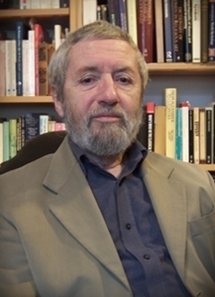
CESAR was the brainchild of Barry Russell. I first met him in 1994 when he was at a very low point in his life. What impressed me about him was not only that he combined his academic knowledge of the theatre with extensive practical experience as a theatre-director but that he had enthusiastically recognised the potential of the internet for academic publishing. In those days, when the WorldWideWeb had barely lifted off, what he was achieving in terms of presenting his research findings in digital format was astonishing. (Since then, of course, progress in that area has been exponential and it is difficult now to appreciate just how far ahead of the field he was.) He had taught himself all the techniques of Web development and never stopped raising the level of his skills.
I created a post for Barry in my department at Brookes and obtained for him a British Academy Institutional Fellowship which enabled him to build up his multi-faceted website on the fairground theatre. He then turned his energies to a more ambitious project which he had long been planning, an online database covering all aspects of the 17th and 18th-century French theatre. We were awarded a major three-year grant by the Arts and Humanities Research Council to take the initiative forward and Barry set up a team at Brookes to turn the project into reality. In September 2002, he launched CESAR (Calendrier Électronique des Spectacles sous l’Ancien Régime et sous la Révolution) at the SIBMAS conference in Rome. Less than six months later, to the horror of everyone, he was dead, the victim of a particularly nasty cancer.
I created a post for Barry in my department at Brookes and obtained for him a British Academy Institutional Fellowship which enabled him to build up his multi-faceted website on the fairground theatre. He then turned his energies to a more ambitious project which he had long been planning, an online database covering all aspects of the 17th and 18th-century French theatre. We were awarded a major three-year grant by the Arts and Humanities Research Council to take the initiative forward and Barry set up a team at Brookes to turn the project into reality. In September 2002, he launched CESAR (Calendrier Électronique des Spectacles sous l’Ancien Régime et sous la Révolution) at the SIBMAS conference in Rome. Less than six months later, to the horror of everyone, he was dead, the victim of a particularly nasty cancer.
That was not the end of CESAR, though ...
No, I took over as director of CESAR for the remainder of the funded period. Fortunately, the foundations that Barry had laid were extremely robust and CESAR rapidly became known as an essential resource for all those with an interest in the early modern theatre. Then I managed to obtain a further major grant from the AHRC, this time to add an imagebank to the CESAR structure. There were many problems to be resolved but the resulting resource has proved to be invaluable as a research tool and arguably unique. It could not have been created without the generosity and goodwill of libraries and museums in Oxford, Paris, Dublin, Harvard, Montreal, London and Manchester which allowed us to photograph engravings from their collections and put them online entirely free of charge, over 3500 of them in all, a heartwarming example of what can be achieved in the academic world through collaboration.
CESAR continues to be available to users throughout the world, free and without formality.
CESAR continues to be available to users throughout the world, free and without formality.
What are your current projects?
Since I retired as director of CESAR in 2009, I have been trying to catch up on some other projects which had been dormant for some time, notably an attempt to find a convincing way of presenting critical editions online and a digital reference work designed to help students and others with the problem of their woeful ignorance of the classical and Christian traditions in Western literature and art. Sadly, there is still something of a resistance in the academic world to publication online despite the prohibitive cost of publication in print, but that resistance is decreasing and will hopefully disappear in time. Anyway, there’s plenty to keep me busy.
Interview by Sabine Chaouche
Interview by Sabine Chaouche
CESAR recent events
2009:
CESAR Exhibition: “French Theatre in the Early Modern period”, Oxford Playhouse, OXFORD
Drawing on the CESAR collection of engravings (http://www.cesar.org.uk), the exhibition provided a unique opportunity to discover different aspects of performance at the time.
2010:
IRPMF-CNRS Conference in collaboration with CESAR: "L'Opéra de Paris, la Comédie-Française, l'Opéra Comique: approches comparées (1672-2010). International Conference at the Théâtre National de l'Opéra Comique, 2-4 December. Collaboration with Dr Solveig Serre and Professor Denis Herlin.
http://www.thefrenchmag.com/Programme-Colloque-L-Opera-la-Comedie-Francaise-l-Opera-Comique-approches-comparees-1672-2010_a68.html
2011 (forthcoming):
CESAR Seminar: 6th May, "Theatre as Visual Spectacle", OXFORD.
CESAR Exhibition: “French Theatre in the Early Modern period”, Oxford Playhouse, OXFORD
Drawing on the CESAR collection of engravings (http://www.cesar.org.uk), the exhibition provided a unique opportunity to discover different aspects of performance at the time.
2010:
IRPMF-CNRS Conference in collaboration with CESAR: "L'Opéra de Paris, la Comédie-Française, l'Opéra Comique: approches comparées (1672-2010). International Conference at the Théâtre National de l'Opéra Comique, 2-4 December. Collaboration with Dr Solveig Serre and Professor Denis Herlin.
http://www.thefrenchmag.com/Programme-Colloque-L-Opera-la-Comedie-Francaise-l-Opera-Comique-approches-comparees-1672-2010_a68.html
2011 (forthcoming):
CESAR Seminar: 6th May, "Theatre as Visual Spectacle", OXFORD.
CESAR Imagebank
Discover French Theatre, Opera, Dance, Court festivities and Fairgrounds (1600-1800)
Do you know what playhouses looked like in the days of Molière or Marivaux? How actors or singers dressed and performed on stage? Which were the different and successful theatrical genres?
If you’re not sure how to answer these questions, take time to visit the CESAR website and see the bigger picture!
CESAR provides the best repository on the Comédie-Française, the Opera, the Fairgrounds, the Comédie-Italienne etc., from 1600 to 1800. It includes a very wide range of images such as portraits of performers and playwrights, scenes from plays, plans of playhouses, frontispieces…
Do you know what playhouses looked like in the days of Molière or Marivaux? How actors or singers dressed and performed on stage? Which were the different and successful theatrical genres?
If you’re not sure how to answer these questions, take time to visit the CESAR website and see the bigger picture!
CESAR provides the best repository on the Comédie-Française, the Opera, the Fairgrounds, the Comédie-Italienne etc., from 1600 to 1800. It includes a very wide range of images such as portraits of performers and playwrights, scenes from plays, plans of playhouses, frontispieces…
